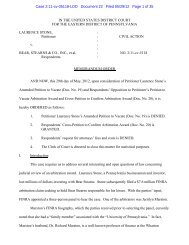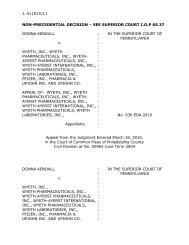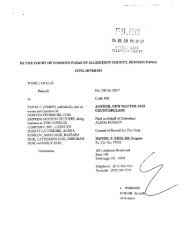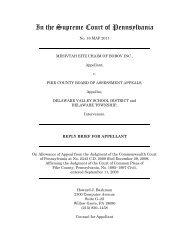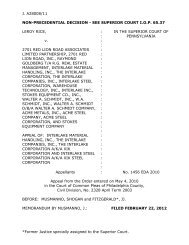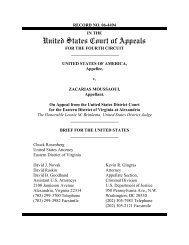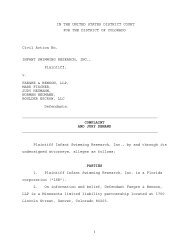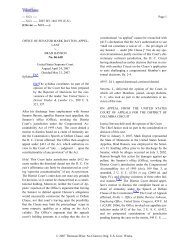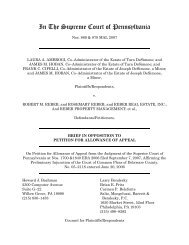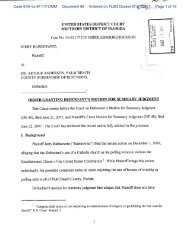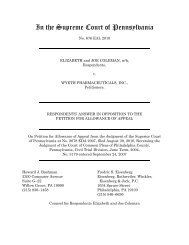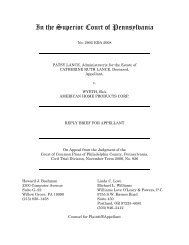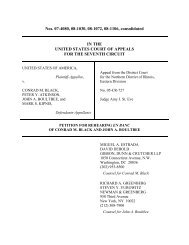DePinto v. Bayonne Board of Education
DePinto v. Bayonne Board of Education
DePinto v. Bayonne Board of Education
You also want an ePaper? Increase the reach of your titles
YUMPU automatically turns print PDFs into web optimized ePapers that Google loves.
Case 2:06-cv-05765-JAG-MCA Document 18 Filed 09/19/2007 Page 24 <strong>of</strong> 28<br />
however, that this analysis would expand to expressive speech.<br />
The second concurrence, filed by District Judge Fullam (sitting by designation from the<br />
United States District Court for the Middle District <strong>of</strong> Pennsylvania), directly opposes the idea <strong>of</strong><br />
a new test for elementary school children. The second concurrence “find[s] unacceptable” the<br />
suggestion “that neither [the student-plaintiff] nor her classmates had sufficient maturity to<br />
express or form valid opinions concerning the proposed class trip to the circus.” Fullam would<br />
have found that the student had the constitutional right to circulate the petition, but joined the<br />
majority because “[t]he record as a whole clearly demonstrates that no Constitutional violation<br />
occurred.” Had a constitutional violation occurred, Fullam would have required “a well-founded<br />
expectation <strong>of</strong> disruption.” Id. at 421 (Fullam, D.J., concurring) (quoting Sypniewski, 307 F.3d<br />
at 253).<br />
Third, subsequent Third Circuit precedent addressing elementary school children does not<br />
11<br />
expressly alter the Tinker test. In S.G. v. Sayreville, a case that followed Walker-Serrano by<br />
two months, the Third Circuit addressed whether a five-year-old kindergarten student’s First<br />
Amendment rights were violated when he was punished for saying “I’m going to shoot you,” to a<br />
11<br />
Defendants also rely on language from Walz ex rel. Walz v. Egg Harbor Township Bd.<br />
<strong>of</strong> Educ., 342 F.3d 271 (3d Cir. 2003), decided two months after S.G. to support their argument<br />
that schools should be given great leeway in what speech may be prohibited for elementary<br />
school students. However, Walz is distinguishable. The student in Walz was prohibited from<br />
distributing gifts containing religious messages in response to a school assignment to bring<br />
generic gifts for a school holiday party. Walz, 342 F.3d at 274. The Walz Court focused its<br />
analysis on the fact that the student’s speech came in response to an “organized and structured<br />
educational activity,” Walz, 342 F.3d at 277, presumably bringing it under the ambit <strong>of</strong><br />
Kuhlmeier. “[W]here an elementary school’s purpose in restricting student speech within an<br />
organized and structured educational activity is reasonably directed towards preserving its<br />
educational goals, we will ordinarily defer to the school’s judgment.” Walz, 342 F.3d at 278.<br />
The student-plaintiffs in this case did not wear the Button as part <strong>of</strong> any school-sponsored<br />
activity. Therefore, Kuhlmeier and Walz do not apply.<br />
24



